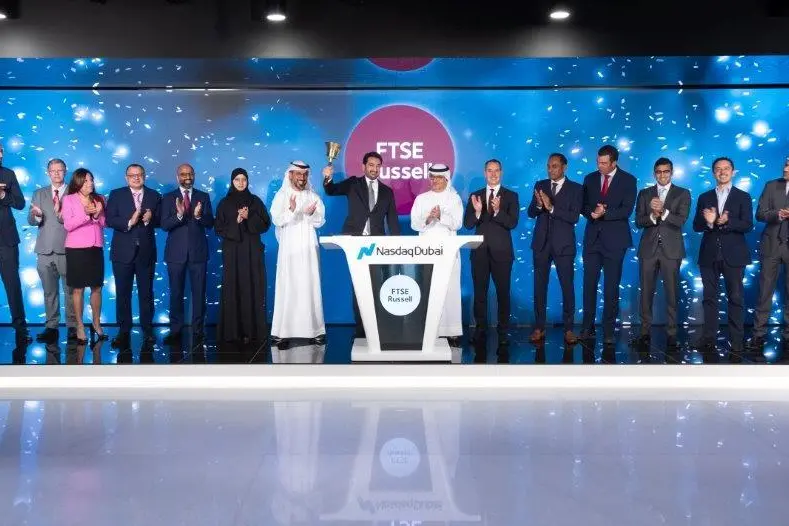PHOTO
The launch of a new FTSE Russell Saudi Arabia Index on Nasdaq Dubai is "the beginning of a partnership" that will lead to the development of many other indices tracking Middle East assets, the exchange's head has said.
Speaking to reporters after the launch of the new index in Dubai on Tuesday morning, Nasdaq Dubai's chief executive, Hamed Ali, said: "There will be a lot more products that come out of this partnership.
“We are going to be looking at different niches and different asset classes where we can benefit from this partnership and the know-how and the intellectual capacity between the two teams,” Ali said.
“We will be looking at Islamic finance, in terms of asset classes. We will also be looking at other markets, which we don't want to disclose at this stage, but our focus is within the region,” he added.
By way of a “hint”, he added that Nasdaq Dubai is currently “the world's largest exchange when it comes to the value of sukuk listed”. Nasdaq Dubai currently has 72 sukuk listed, worth a total $60.95 billion, a spokesman told Zawya.
“Our primary focus will be in how can we enrich the achievement we've had when it comes to sukuk? How can we educate the market and give them more tools and utilities that are relevant to shariah products, when it comes to the sukuk?" Ali said.
“Over the next few weeks, the teams will be discussing and we will be able to shortlist which direction exactly in terms of the asset class we would like to go," he said, adding that announcements on new products can be expected within the current quarter.
Ali said that “a big part of our focus in 2019 going forward will be on derivatives”.
“Most of the derivatives markets that are prominent today, it took up to five years for them to grow. That takes the right selection of products. We're following a similar template.”
Singles before groups
Nasdaq Dubai's template has involved launching single stock futures in the first instance (it launched its first futures on UAE stocks in 2016, and on Saudi shares last month). These have been followed by the launch of tradeable indices on markets (Dubai, Abu Dhabi and combined UAE market indices were launched in 2017, 2018 and earlier this month respectively, followed by the Saud index today).
Ali told Zawya in an interview last month that Egypt is also a potential future target. (Read more here).
Speaking to reporters on the sidelines of today's launch, Waqas Samad, chief executive of index compiler FTSE Russell, described the launch of the Saudi market index as “a starting point”.
“We have a great partnership developing with Nasdaq Dubai and we're looking to see what other products we can work on with them,” he said.
When asked about the potential for launching an Egyptian futures index, he added: “We'll see. That depends on demand. We work with our great partners like Nasdaq Dubai to understand what the specific demand will be in the region and if that's something that seems to be appealing... we'd be minded to work with them to develop something in that regard, but we don't have any specific plans on that at this stage."
Asked about the prospect of launching an index tracking the Kuwait market, he added: “We don't have anything in the pipeline at this stage, but we're open to discussing that if there's demand for that in the local markets.”
Ali said that product diversification has been a key part of a huge leap in year-to-date volumes of futures traded on Nasdaq Dubai. So far this year, average daily traded volume have virtually tripled to $737,962, up from $262,246 in the same period last year.
(Reporting by Michael Fahy; Editing by Mily Chakrabarty)
© ZAWYA 2019





















